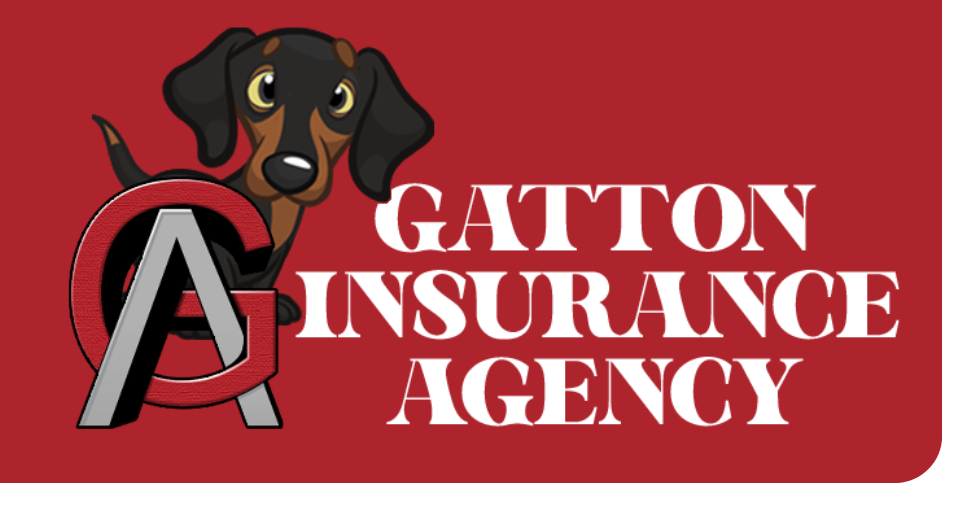Introduction to Climate Change and Insurance
Climate change refers to significant and lasting changes in global temperatures and weather patterns over extended periods. While climate change is a natural phenomenon, human activities have accelerated this process, leading to more frequent and severe weather events, such as hurricanes, floods, and droughts. These environmental shifts have profound repercussions not only on ecosystems but also on urban development, agriculture, and public health, posing unique challenges for communities and businesses alike.
Insurance serves as a critical safety net for both individuals and businesses, providing financial protection against unexpected disasters and unforeseen events. In Indiana, residents often rely on various insurance products, such as homeowners, auto, and business liability insurance, to mitigate risks associated with potential damages. As the climate crisis unfolds, the insurance sector faces increasingly complex challenges in assessing risk and determining coverage options. The frequency and severity of climate-related events can lead to a surge in claims, placing additional strain on insurance providers.
The relationship between climate change and insurance is multidimensional. As natural disasters become more prevalent and unpredictable, insurers must refine their risk assessment models, which directly influences policy pricing. In Indiana, the implications are significant; the rising temperature and increased rainfall patterns may lead to higher premiums and altered coverage options. Furthermore, the increasing financial exposure associated with climate-related damages impacts the overall insurance industry, compelling companies like the Gatton Agency to adapt their strategies in an evolving marketplace. Understanding the intricate link between climate change, environmental risks, and insurance costs is crucial for stakeholders as they navigate these challenges moving forward.
Overview of Climate Change Effects in Indiana
Climate change is significantly affecting various regions across the United States, and Indiana is no exception. As the effects of climate change continue to manifest, residents of Indiana are witnessing an alarming increase in the frequency and intensity of severe weather events. This includes a rise in instances of floods, droughts, and storms, which not only disrupt daily life but also pose considerable challenges to the insurance sector.
One notable impact is the prevalence of heavy rainfall leading to flooding. According to the National Weather Service, Indiana has seen a rise in the number of days with heavy precipitation, leading to increased flood risks for homes and businesses alike. This trend necessitates a reevaluation of insurance policies in the state, as the associated damages can lead to higher claims, ultimately affecting insurance rates. For instance, areas such as central and northern Indiana have experienced significant flooding, prompting residents to reassess their insurance coverage through local providers like The Gatton Agency to ensure they are adequately protected.
Moreover, the state is grappling with drought conditions that can affect both agriculture and water supply. Farmers, who traditionally rely on predictable weather patterns, have faced losses due to droughts resulting from climate change. These losses can lead to higher premiums in agricultural insurance, impacting the overall economy in Indiana. Additionally, property owners in areas susceptible to wildfires and storms must increasingly account for the growing risk of property damage, further underscoring the need for reliable insurance solutions.
In summary, the effects of climate change in Indiana, characterized by an increase in severe weather events, necessitate a proactive approach from residents and the insurance sector alike. The evolving climate patterns underscore the urgency for individuals to engage with insurance agencies like The Gatton Agency to ensure they remain adequately covered in the face of these significant changes. Ensuring responsible risk management in light of climate change is increasingly important for safeguarding both personal and financial well-being in Indiana.
Rising Insurance Rates: A Consequence of Climate Change
Climate change has emerged as a significant factor influencing insurance rates across Indiana. As the state witnesses an increase in the frequency and severity of natural disasters, the implications for the insurance industry are profound. Insurance operates on the principle of risk assessment; underwriters evaluate the potential for loss based on statistical data. With the escalation of extreme weather events, including floods, tornadoes, and severe storms, the risk associated with insuring properties has noticeably increased.
This shift in risk perception results in higher claim rates, which in turn drives premiums up for homeowners, auto insurance, and various other policies. For instance, homeowners in areas prone to flooding may experience difficulties obtaining affordable coverage, as insurance providers begin to adjust their rates to reflect higher potential losses. The Gatton Agency, a leading insurance provider in Indiana, illustrates how these shifts have forced many policyholders to reconsider their coverage options and potentially increase their budgets.
Furthermore, auto insurance is similarly affected, particularly as severe weather conditions contribute to more frequent accidents. For example, icy roads and heavy rainfall can lead to a spike in claims, prompting insurance companies to raise rates to mitigate their financial liabilities. Such adjustments are not only essential for maintaining the stability of the insurance market but also serve as a direct response to the realities imposed by climate change. As illustrated in various case studies, businesses that previously adhered to fixed premium models now find themselves needing to consider variable factors influenced by climate patterns.
Ultimately, the rising insurance rates in Indiana underscore a larger trend where the effects of climate change are reshaping the risk landscape of the insurance industry. As policyholders become increasingly aware of these changes, it is crucial for them to understand the implications for their coverage and premium costs.
The Role of Gatton Insurance Agency in Indiana
As climate change continues to influence various sectors, including insurance, the Gatton Insurance Agency in Indiana stands as a proactive leader. This Kentucky-based agency recognizes the unique challenges that climate-related phenomena pose to property and casualty insurance. With increasing incidents of extreme weather events, such as floods, storms, and droughts, the importance of accessible and reliable insurance solutions has grown significantly.
The Gatton Insurance Agency is dedicated to helping clients navigate the complexities of rising insurance costs driven by changing environmental risk factors. They understand that as the frequency and intensity of climate events increase, so too do the associated risks that insurance companies must assess. Therefore, the agency offers tailored insurance solutions that reflect the specific needs and concerns of individuals and businesses within the community. By integrating comprehensive risk assessments and flexible insurance options, they help their clients make informed decisions about coverage.
In addressing the challenges posed by climate change, Gatton Insurance has implemented several strategies aimed at providing their clients with better protection. These initiatives may include advocating for risk mitigation measures and educating the community on the importance of preparedness to reduce the impact of climate-related incidents. Additionally, the agency emphasizes the need for regular policy reviews and updates to ensure clients remain adequately covered against evolving risks.
By focusing on personalized service and a thorough understanding of the local market, the Gatton Insurance Agency is not only adapting to the current landscape but also positioning its clients for success. Their commitment to providing informed guidance empowers residents in Indiana to navigate the complexities of insurance in an era defined by climate change, ultimately fostering resilience in the face of uncertainty.
Adaptive Measures to Mitigate Insurance Rate Increases
In the face of rising insurance rates attributed to climate change, homeowners and businesses in Indiana can take several adaptive measures to help curb financial burdens. One of the most effective strategies involves investing in property upgrades that enhance resilience against extreme weather conditions. For instance, reinforcing roofs, installing storm-resistant windows, and using flood-proofing techniques can significantly reduce the risk of damage during adverse weather events, subsequently leading to lower insurance premiums. Homeowners should consider upgrading heating systems and insulation, which not only improves energy efficiency but also reduces the likelihood of damage during severe weather.
Implementing comprehensive disaster preparedness plans is another crucial step for both individuals and businesses. This includes developing clear evacuation routes, establishing communication plans, and maintaining an updated inventory of valuable assets. Preparedness not only ensures safety during a disaster but also demonstrates to insurance providers that the property is managed responsibly. Many insurance companies, including local firms like The Gatton Agency, might offer incentives or reduced rates for policyholders who take proactive measures to implement such plans.
Participation in community resilience initiatives can also play a significant role in managing insurance costs. Engaging with local government efforts to improve infrastructure can have a far-reaching impact. This may include advocating for improved drainage systems, levees, or community gardens that absorb excess rainwater to prevent flooding. By supporting these initiatives, residents can help mitigate the effects of climate change, thereby lessening the financial impact on individual insurance policies. Collective action often leads to stronger community support systems, ultimately reducing risk and associated insurance costs for all residents in Indiana.
The Future of Insurance in Indiana Amid Climate Change
The insurance landscape in Indiana is poised for significant transformation as the effects of climate change continue to escalate. As weather patterns become increasingly unpredictable, insurance providers are compelled to adapt their strategies to meet the evolving risks associated with natural disasters. Historical data indicates that Indiana has experienced a rise in severe weather events, including floods, storms, and heatwaves, prompting many insurers to reconsider their underwriting practices.
Future insurance rates in Indiana may well reflect the heightened risk of these climate-related events. As insurers assess their exposure to catastrophic losses, it is likely that policyholders will encounter further rate hikes. This trend may particularly affect homeowners’ insurance, as properties previously considered low-risk could see premiums spike due to an increased probability of damage from flooding or severe storms. Additionally, changes in coverage policies may emerge, with insurers offering less comprehensive coverage in high-risk areas, leaving property owners to navigate a complex insurance environment.
Moreover, technology and data analytics are expected to play a crucial role in shaping the future of insurance in Indiana. By harnessing advanced analytics and geographic information system (GIS) technology, insurance providers can better evaluate risks and forecast potential losses. This data-driven approach helps insurers make informed decisions about policy pricing and coverage levels. For instance, using predictive modeling can allow companies to better understand the long-term impacts of climate change on their insured properties, tailoring their offerings to ensure sustainability and affordability.
As stakeholders in the insurance industry, policymakers, and consumers recognize these shifts, it will be essential for them to collaborate on constructing a resilient framework that addresses the challenges posed by climate change. Such efforts will be critical in ensuring that Indiana not only adapts to these transformations but thrives in a continually changing environmental landscape, thereby safeguarding both the interests of insurers and the public at large.
Community Efforts and Resources
In Indiana, community efforts aimed at building climate resilience and promoting sustainable practices have gained significant traction, especially in light of the escalating impacts of climate change. Various organizations and initiatives have emerged, focusing on educating residents about the potential repercussions on sectors, including insurance, while fostering a proactive approach to mitigation.
Local environmental groups often coordinate workshops and outreach programs that emphasize the relationship between climate change and its influence on insurance rates. These educational campaigns are crucial for informing residents about how changing weather patterns can affect property values, risks, and thus, insurance premiums. Local coalitions, such as the Indiana Climate Change Impacts Assessment, facilitate discussions and help individuals grasp the necessity of sustainable practices. By involving the community, these initiatives cultivate a sense of shared responsibility towards environmental stewardship.
Furthermore, organizations such as The Gatton Agency engage with local communities to raise awareness regarding insurance policies that address climate-related risks. They provide resources that explain various insurance options available, which can specifically help homeowners mitigate potential losses due to extreme weather events. These collaborative efforts are instrumental in equipping residents with the knowledge required to make informed decisions regarding their property protection and insurance coverage.
Community members are encouraged to participate in local sustainability projects, like tree planting, waste reduction, and water conservation efforts. Engaging in these initiatives not only promotes environmental responsibility but also contributes to the overall resilience of communities against climate challenges. Nationwide programs and grants have also been made accessible to support local entities in their quest for sustainability and adaptation strategies.
Collectively, these community-driven efforts exemplify the importance of awareness and action in addressing the multifaceted impacts of climate change, ultimately creating a more informed populace prepared to navigate the evolving landscape of insurance and environmental risks in Indiana.
Expert Recommendations for Consumers
As climate change continues to influence the frequency and severity of natural disasters, consumers in Indiana must adapt their insurance strategies accordingly. Experts from the Gatton Insurance Agency, alongside other industry professionals, emphasize the importance of evaluating current insurance policies to ensure they meet evolving needs. Insurance rates, especially for homeowners and businesses, can fluctuate based on climate-related risks, making it crucial for policyholders to stay informed.
One key recommendation is to conduct a thorough review of existing coverage. Homeowners should assess whether their policies adequately protect against potential storm damage, flooding, or other climate-induced scenarios that may arise as the weather patterns shift. Adjustments may be necessary to account for increased risks associated with extreme weather events, which can potentially lead to higher insurance premiums if not properly addressed.
Consulting with a knowledgeable insurance agent can provide invaluable insights. Agents from reputable firms such as the Gatton Agency can help consumers understand the nuances of their policies and identify factors that could influence their insurance rates. It may be beneficial to explore additional options, such as bundling home and auto insurance, which can potentially lead to lower overall costs while ensuring comprehensive coverage.
Moreover, consumers are encouraged to stay updated on local regulations and climate projections that could impact insurance markets in Indiana. Understanding geographical risks, such as flood zones or areas prone to wildfires, can assist in making informed decisions about insurance needs. Embracing preventative measures, such as home renovations to enhance disaster resilience, may also mitigate risk and improve policy terms.
In conclusion, by evaluating insurance policies with the guidance of professionals from the Gatton Insurance Agency and adapting to climate-related risks, Indiana consumers can navigate the complexities of the insurance market more effectively and secure the protection they need. Being proactive is essential in an era of increasing climate volatility.
Conclusion: Embracing Change and Taking Action
As we have explored throughout this blog post, the impact of climate change on insurance rates in Indiana is a complex and evolving challenge. The increase in severe weather events, rising temperatures, and fluctuating precipitation patterns have significant implications for property and casualty insurance. These changes are not just statistics; they represent real risks that affect the livelihood of residents and businesses alike in Indiana. Understanding how climate change influences insurance rates is essential for making informed decisions regarding coverage and risk management strategies.
Engaging with trusted agencies, such as the Gatton Agency, can provide critical insights tailored to individual needs. Their expertise helps navigate the intricacies of insurance policies and identify the best options in the face of changing climate conditions. For homeowners, business owners, and renters, it is essential to reassess insurance coverage regularly to ensure it adequately reflects potential climate-related risks. By doing so, individuals can avoid unforeseen liabilities that could arise from environmental changes affecting their properties.
Moreover, it is not solely the responsibility of insurance providers to adapt; consumers also have a role to play. Implementing proactive measures in risk management, such as enhancing property resilience against flooding or incorporating energy-efficient practices, can mitigate both personal and financial repercussions of climate change. The proactive steps taken now can lead to more favorable insurance rates in the future and contribute to overall community well-being.
In conclusion, acknowledging the link between climate change and insurance rates is crucial for residents of Indiana. By staying informed, reevaluating personal insurance strategies, and working closely with agencies like the Gatton Insurance Agency, individuals can better prepare for a future marked by change. Embracing this necessary action today will pave the way for more resilient, less vulnerable communities to thrive amidst the realities of climate change.






